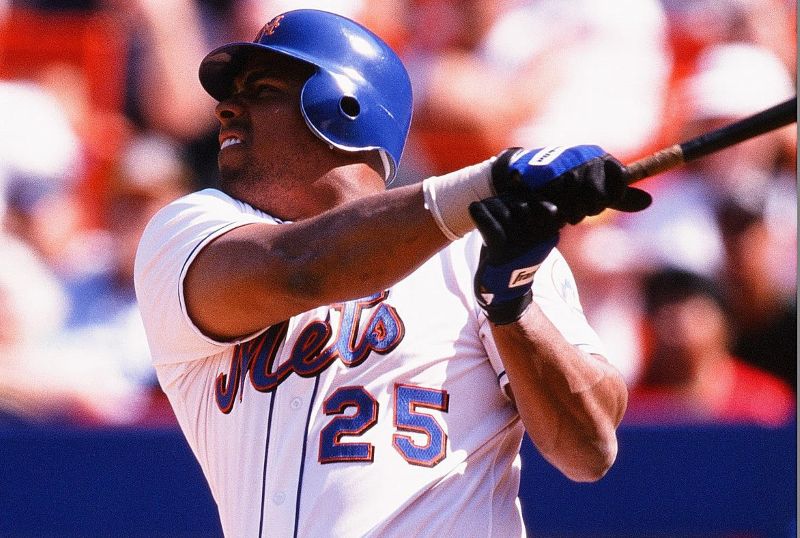Bobby Bonilla's Timeless Payday Continues to Turn Heads in Baseball’s Financial History
Every year on July 1, baseball fans across the country celebrate what's affectionately become known as Bobby Bonilla Day. On this date, 62-year-old Bobby Bonilla receives an annual check worth $1,193,248.20 from the New York Mets, a sum he has collected each year since 2011 and will continue to receive until 2035. Though he last played for the Mets in 1999 and ended his MLB career with the St. Louis Cardinals in 2001, his name remains one of the most talked-about each summer thanks to this iconic deferred-money deal.
The origins of this agreement date back to the year 2000, when the Mets decided to buy out the remaining $5.9 million on Bonilla’s contract. Rather than paying the lump sum upfront, the team agreed to a deferred-payment structure that included 8% interest, resulting in the now-famous annual million-dollar checks. At the time, the Mets’ ownership was heavily invested with Bernie Madoff, expecting massive returns that ultimately never materialized.
Despite the financial misstep, Bonilla’s payday has become a celebrated tradition in New York. Under Steve Cohen’s ownership, the Mets have even embraced the moment, with talks of making it a fan event at Citi Field each year. The continued payment not only amuses fans but also serves as a reminder of one of the most unique financial decisions in Major League Baseball history.
While Bonilla’s deal is the most talked about, he’s far from the only former player receiving long-term payouts. He also has a second deferred-payment contract with both the Mets and the Baltimore Orioles, earning him an additional $500,000 per year since 2004. Former Mets pitcher Bret Saberhagen enjoys a similar setup, collecting $250,000 annually since 2004, and was reportedly the inspiration behind Bonilla’s deal.
Other prominent names also remain on payrolls despite having long since retired or changed teams. Max Scherzer will receive a total of $105 million in deferred payments from the Washington Nationals through 2028. Manny Ramírez is still collecting $24.2 million from the Boston Red Sox, a deal that stretches to 2026. Meanwhile, Chris Davis is quietly earning what might rival Bonilla’s status, receiving $59 million over 15 years from the Orioles. He received $9.16 million in 2024 and 2025, with smaller payments continuing through 2037.
In the modern era of mega-deals, deferred money has become a financial tool for flexibility. A prime example is the unprecedented contract signed by Shohei Ohtani with the Los Angeles Dodgers. Ohtani, the sport’s biggest global star, structured his $700 million deal so that only $2 million per year is paid during the ten-year term. The remaining $680 million will be disbursed from 2034 to 2043, at $68 million annually. This approach gives the Dodgers more payroll room now, while still honoring the full value of Ohtani’s contract in the long run.
When comparing Bonilla’s payment to the 2025 earnings of current rising stars, the contrast becomes even more remarkable. Due to MLB's rookie salary structures, several high-performing young players are making less than Bonilla’s $1.19 million this year. For example, Pete Crow-Armstrong is earning $771,000, despite his strong season. Others on the list include James Wood ($764,600), Paul Skenes ($875,000), Riley Greene ($812,400), Hunter Brown ($807,400), Andy Pages ($770,000), and Jacob Wilson ($760,000).
What sets Bonilla’s situation apart is that it originated not from star-level performance, but from a buyout of an underperforming veteran. By contrast, Ohtani's deferred mega-contract was initiated by a top-tier athlete at the height of free agency dominance. This stark difference illustrates how deferred payments in baseball have evolved — from financial miscalculations to calculated strategic planning by elite organizations.
Still, Bobby Bonilla Day remains a favorite among baseball fans, partly because it combines nostalgia, finance, and a touch of humor. It’s a testament to how sports and money intersect in ways few could’ve predicted. As long as that July 1 check keeps arriving, Bobby Bonilla will remain one of the most memorable names in the game — long after his final swing.

COMMENTS (0)
Sign in to join the conversation
LOGIN TO COMMENT